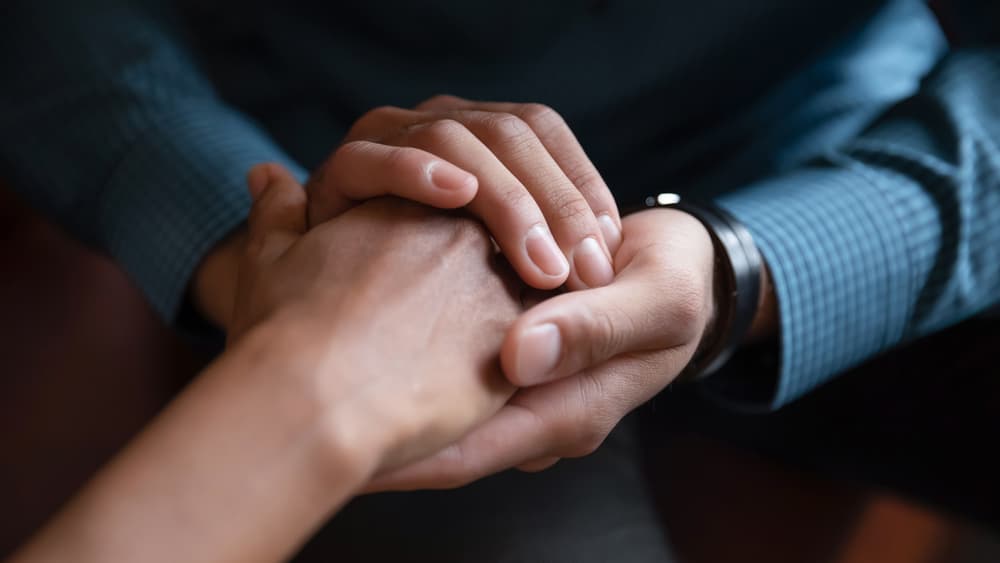Amaha / / / How Psychotherapy Helps You Navigate Anxiety
ARTICLE | 5 MINS MINS READ
How Psychotherapy Helps You Navigate Anxiety
Published on
10th Mar 2025

From quickly approaching deadlines at work to upcoming exams, there are moments when you may have felt worried or anxious. Anxiety is a reaction to threat or danger, it is how our body communicates that something isn't quite right. So, feeling anxious from time to time is normal; it can even be helpful as it helps us act quickly and keeps us from danger.
But for some, this worry gets worse or does not go away with time, even after the stressful situation has passed. Those dealing with anxiety disorders live with a persistent, overwhelming, and irrational feeling of worry, which affects their daily life.
If you are living with anxiety, it can make your fears seem much worse than they are, or make you second-guess your actions. Although you may know that your reactions don't match the gravity of the situation, it can still be hard to control your thoughts and actions.
Therapy can be an effective tool in helping you manage your symptoms, but if you have not sought professional help before, it can be hard to take that first step.
By learning more about how psychotherapy for anxiety can help, and understanding different approaches, you can know what to expect, which can make seeking help seem a little less overwhelming.
In this article, we discuss the various therapeutic approaches that can help with your anxiety.
Also read: How Does Therapy Help With Anxiety?
Does psychotherapy help with anxiety disorders?
Research has shown that therapy can be highly effective in helping individuals manage anxiety disorders.
With psychotherapy, mental health professionals tailor their approach to help individuals manage their specific symptoms. But, beyond being able to personalise the treatment, therapy can help individuals understand the underlying cause of their worries and fears.
Psychotherapy not only helps individuals learn new skills to cope with their anxiety but also knows how to use them. Working with a trained mental health professional can help you learn how to manage your condition better in the long run.
Therapies for Anxiety Disorder
Psychotherapy is most commonly used to treat anxiety disorders as it can be tailored to an individual's specific concerns. While some people may see results after eight to ten sessions, others may need to stick with their treatment plan a little longer.
Cognitive behavioural therapy (CBT)
The most commonly used type of therapy for anxiety is Cognitive Behavioural Therapy (CBT). The core philosophy of CBT is that mental health conditions are based on negative thought patterns and learned behaviours.
Hence, CBT focuses on identifying these maladaptive thoughts and behaviours and helping individuals learn how to change them. Using CBT techniques, mental health professionals help individuals identify negative or distorted thought patterns and learn how to reframe them.
Exposure therapy
With exposure therapy, individuals are exposed to their fear in gradual increments. It is a common CBT method which is useful in treating a variety of anxiety disorders, such as specific phobias, social anxiety disorders and more.
The idea behind this approach is that as individuals are exposed to anxiety-provoking situations, in gradual increments, it can help them feel more and more in control of the situation and their feelings. Thus, as individuals get used to being in a scary or difficult situation, their anxiety will diminish.
While exposure therapy is often used by itself, it is a part of the CBT approach.
Dialectical behaviour therapy (DBT)
One of the main goals of dialectical behaviour therapy is to help individuals change their behaviour patterns, which can be helpful for those dealing with anxiety disorders. DBT incorporates CBT techniques to help individuals cope better with physical symptoms of anxiety.
The DBT treatment approach often involves individuals learning about mindfulness techniques, which can help them focus on their present situation instead of worrying about the future. With DBT, individuals can also learn how to improve their interpersonal effectiveness, which helps them communicate better and maintain healthy relationships with others.
DBT also equips individuals with tools to help them regulate their emotions better, which is useful in anxiety-provoking situations.
Acceptance and commitment therapy (ACT)
Stemming from CBT, acceptance and commitment therapy is especially effective in managing social anxiety and test anxiety.
This technique involves two main components:
Recognising and accepting that sometimes your thoughts and feelings do not need to be controlled.
Committing to identifying your life values and living your life to match them.
With this approach, individuals learn to accept their anxious thoughts and feelings, instead of suppressing them. ACT helps individuals learn strategies which can help them to tolerate their discomfort, rather than avoid it.
Remember, these approaches are effective only when carried out by trained and experienced mental health professionals.
If you have been unsure whether therapy is the right choice for you, learning more about these approaches can help. An effective treatment plan looks different for everyone, based on their needs, expectations, and specific symptoms.
It is important to remember that therapy is a gradual process and following your treatment plan can help you see results.
Sources:
https://www.verywellmind.com/anxiety-therapy-4692759
https://psychcentral.com/anxiety/psychotherapy-for-anxiety-disorders#act
https://www.helpguide.org/articles/anxiety/therapy-for-anxiety-disorders.htm
https://www.utrgv.edu/behavioral-health-lab/_files/documents/treating_anxiety_disorders.pdf